![Jacek Czaputowicz, Kamil Ławniczak, Anna Wojciuk, Nauka o stosunkach
międzynarodowych i studia europejskie w Polsce [International Relations
and European Studies in Poland]](/api/image/getissuecoverimage?id=picture_2015_21724.jpg)
![Jacek Czaputowicz, Kamil Ławniczak, Anna Wojciuk, Nauka o stosunkach
międzynarodowych i studia europejskie w Polsce [International Relations
and European Studies in Poland]](/api/image/getissuecoverimage?id=picture_2015_21724.jpg)
![Ryszard Zięba, Stanisław Bieleń, Justyna Zając (ed.), Teorie i podejścia
badawcze w nauce o stosunkach międzynarodowych [Theories and Research
Approaches in International Relations]](/api/image/getissuecoverimage?id=picture_2015_21724.jpg)
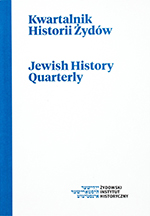
Keywords: Sabbataism; Frankism; heresy
The history of Frankism has been presented as the story of Jakub Frank, a charismatic self-styled Messianic leader and his Polish followers. Frank was in Poland around the end of 1755 and early 1756 and less than two months later was expelled from the country, converted to Islam and did not participate in the developments that were crucial for the formation of his movement. The incident in the Lanckoroń inn in no way explains the course of subsequent events. With that approach, the subsequent developments, which resulted in the formation of a powerful Messianic movement, public debates on faith with rabbis and ultimately the conversion of hundreds of Jewish Messianists to Catholic faith appear incomprehensible. The presentation of the origins of Frankism in literature is quite coherent. According to this presentation, Yaakow Josef ben Leib, known as Frank, came to Poland in December 1755 in order to boost the morale of the local followers of Sabbatai Zvi. On 27 January 1756 he was allegedly caught practicing sectarian rites in Lanckoroń and got arrested. Bishop Mikołaj Dębowski decided that he was competent to resolve disputes concerning faith, Jewish faith included. He began an inquiry into the incident. This culminated in the dispute with the rabbis in November 1757 and symbolic burning of Talmud in Kamieniec Podolski.There are some fundamental questions discussed in the article. Were the developments in Lanckoroń planned in advance as of a long-term plan? Were Polish Jews the only participants in the unrest or were Jews from other countries involved as well, and if so, what goals were they pursuing? Why did the shouting match in the Lanckoroń inn produce such serious consequences and lead to a public dispute between the sectarians and the rabbis before a bishop’s court, meaning an open religious schism within the Jewish community? What happened in that inn and in the next several days then?
More...![Jacek Czaputowicz, Suwerenność [Sovereignty]](/api/image/getissuecoverimage?id=picture_2015_21724.jpg)
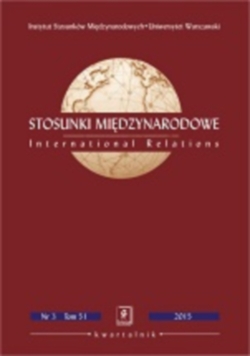
![Piotr A. Świtalski, Emocje, interesy, wartości. Przemiany paradygmatów
polityki międzynarodowej [Emotions, Interests, Values. Changing Paradigms
of International Policy]](/api/image/getissuecoverimage?id=picture_2015_21724.jpg)

Keywords: Kraków; inter-war period; municipal welfare policies; city subsidies
The author analyses the welfare policy of the Kraków commune toward the Jewish inhabitants of the city and the Jewish community. She differentiates between two periods of the interwar years, the Great Depression being the dividing line. In the first, liberal, period the Jewish community was treated as an agency implementing the municipal welfare policy vis-á-vis the Jews. This translated into a continuation of the practices of Galician times, consisting in subsidizing the main Jewish community institutions, such as the hospital, the bathhouse, etc. When the crisis struck, the subsidies were severely cut or withdrawn altogether. During the latter period, the welfare activities of the Jewish communities were curtailed while the Jews did not come under the state welfare policy, which meant that this denomination was denied any welfare aid. The author also outlined the capital expenditures policies of the local government of Kraków’s Kazimierz district, whose population was predominantly Jewish.
More...
Keywords: Ancient Latin; English; Linguistic imperialism; Roman Empire; Globalization, Language policy;Senovės lotynų kalba; Anglų kalba; Lingvistinis imperializmas; Romos Imperija; Globalizacija; Kalbų politik
Some scholars support the existence of a close similarity between the role played by Latin in the Roman Empire and by English in the contemporary world as supra-local languages, by resorting to the assumption of a close similarity between the Roman Empire and today’s globalized world. However, an overview on these two historical phenomena shows substantial differences. First of all, Latin was the supra-local language par excellence only in the Western part of the empire, because in the Eastern part this role was mostly played by Greek. In addition, during the Roman Empire Latin was the language of the administration, but on the whole it did not have a notable clout, since the actors that had traditionally played a key-role in spreading languages in Modern Europe were absent: the concept of national language was unknown, there was no compulsory education, and nothing comparable to mass-media existed. By focusing on the contemporary globalized society, one can observe that language is crucial in legitimizing the institutions, in supporting specific economic powers and the cultures related to such powers. In particular, the current linguistic imperialism of English is strictly bound to those economic powers that interlock with (and take advantage of) political, military, educational structures and mass-media (as significantly witnessed by the processes of McDonaldization and Coca-Colonization). The present comparison between past and present situations is not limited to these situations as such, but is aimed at better highlighting the respective differences: in this case, the recourse to the past is useful to see the contemporary issues concerning multilingualism under a different viewpoint. Kai kurie mokslininkai, remdamiesi prielaida, kad tarp Romos imperijos ir šiuolaikinio globalizuoto pasaulio egzistuoja didelis panašumas, teigia, kad Romos imperijos lotynų kalbos bei šiandienio pasaulio anglų kalbos kaip supralokalių kalbų vaidmenys yra labai panašūs. Vis dėlto šių dviejų istorinių reiškinių apžvalga atskleidžia reikšmingus skirtumus. Pirma, lotynų kalba buvo supralokali kalba par excellence tik vakarinėje imperijos dalyje, kadangi rytinėje šį vaidmenį daugiausia atliko graikų kalba. Be to, nors Romos imperijos gyvavimo laikais lotynų kalba buvo administravimo kalba, apskritai ji neturėjo ypatingos įtakos, nes tuomet nebuvo tradicinių šiuolaikinės Europos kalbų sklaidos priemonių – nacionalinės kalbos koncepcija buvo nežinoma, nebuvo privalomo švietimo bei neegzistavo nieko panašaus į masines informavimo priemones. Žvelgiant į šiuolaikinę globalizuotą visuomenę, galima pastebėti, kad kalba – esminis institucijų įteisinimo ir specifinių ekonominių jėgų bei kultūrų, susijusių su tomis jėgomis, palaikymo elementas. Šiuolaikinis anglų kalbos lingvistinis imperializmas ypatingai susijęs su tomis ekonominėmis jėgomis, kurios susijungia ir pasinaudoja politinėmis, karinėmis, švietimo struktūromis ir masinės informacijos priemonėmis...
More...
Keywords: Jewish refugee problem; League of Nations; international cooperation; 1933-1939
The present article is devoted to the question of international cooperation within the League of Nations in resolving the Jewish refugee problem in the period from 1933 to 1939. The article covers the major achievements and challenges of the international society in assisting Jewish refugees. The main attention is paid to institutional, administrative and legislative methods of problem solving, particularly establishment and activities of the High Commissioner for Refugees coming from Germany as well as adoption of international agreements regarding the legal status of Jewish refugees.
More...
Keywords: Stanisław Wygodzki; Holocaust in belles lettres; attitudes toward Holocaust; universalization of Holocaust experience; anti-Semitism
Polish literature boasts many works that paint a panorama of the Jews’ fate during the war, including works of outstanding value. However, research done in recent years indicates that the reception of such works, if it existed in the first place, made it possible to overlook the Holocaust. The works by Stanisław Wygodzki, abundant and widely reviewed as they were, make it possible to show how much of the depiction of the Holocaust in his short stories the reviewers notice and draw the readers’ attention to. The critics turn the readers’ attention toward humanistic universalization, which constitutes the neutralization of the Holocaust, while the Poles’ attitudes are only named when they exemplify victorious heroism. The reviewers write about what they regard as an exaggerated emphasis on suffering in Wygodzki’s works, accuse the author of giving in to his obsessions as writer. Sometimes what they write is a simple trivialization of the Jewish experience. The Holocaust is not given its proper name.
More...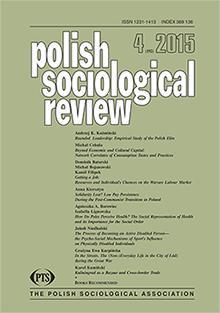
Keywords: leaders; leadership; qualitative research; typology; leadership constraints; leadership strength.
This paper presents the results of qualitative research conducted by the method of in-depth interviews with Polish leaders. A very diversified group of high-level and considerably successful leaders were selected and interviewed. The typology (profiles) of the leaders, their constraints and strength are revealed and discussed. The leaders give much importance to their struggle for autonomy and overcoming constraints. They are familiar with the different models of "optimal leadership." Their profiles and sources of leadership strength are examined within the framework of the "bounded leadership theory."
More...
Keywords: oppression continued; „indifferent witnesses”; theatre; „false transcendence”; volunteer guards; „young spectators’ theatre”
The article looks at the question whether subjects dealing with the Poles’ attitude toward the Jews during the Holocaust times cropped up in Polish literature from the 1950s and 1960s, subjects that caused a kind of scandal when approached several decades later. This means such matters as instances of killing Jews during the Warsaw rising, the reactions of onlookers watching the ghetto go up in flames, the so-called man-in the-street comments on the perishing Jews, etc. The author believes that such subjects appeared—and quite often too—in short stories and books by such authors as Adolf Rudnicki, Kazimierz Brandys, Ludwik Hering, Mieczysław Frenkiel and others. What was it then that suppressed this knowledge? There is every indication that it was the way memory was moulded through the official discourse, in textbooks and in propaganda.
More...
Keywords: Jews; Białystok; Holocaust survivors; Jewish committee; emigration
As a result of World War II, Białystok ceased to be a centre of Jewish life as, out of a community of some 50,000 only about 1,000 Jews survived the war. Many of the Jews who returned to Białystok left the town quite soon, having found none of their relatives nor their own homes and encountered an unfriendly attitude of the locals toward them. Most of the assets of the Jewish inhabitants and institutions which were left standing when the war was over were taken over by the state, with just one synagogue remaining open. In the first postwar years, the town saw an influx of Jewish immigrants from the east, who joined for an interim period the local community, living in hard conditions. The Voivodship Jewish Committee provided comprehensive care over its members. It ran a canteen, a care centre for the elderly, day care centre for children, and an infirmary. Its activity also included supporting business undertakings, culture, education, upholding the memory of Holocaust victims. In order to create jobs, several Jewish cooperative were set up, e.g., a bakery, a tailoring shop, a cobbler’s shop and a blacksmith’s. For several years, a small, 4-grade, general school with classed in Jewish language also existed.Białystok Jews’ political activity after the war was low-key, with small Bund, Ichud and Ha-Shomer ha-Tsair units operating in the town, and there was also the Jewish Faction of the Polish Workers Party. Despite the efforts to improve the living conditions of the Jewish community of Białystok, their number were shrinking fast. As a result of emigration to Israel and also migrations to the so-called regained territories, only 300 were still living in Białystok in 1950. For this reason, and also due to the policies of the Stalinist authorities, by the end of the 1940s almost all the Jewish institutions in the town were wound up. All that was left were the not very vibrant religious congregation and a branch of the Socio-Cultural Jewish Society, which were unable to meet the expectations of the community
More...
Keywords: Professor Feliks Tych
no summary
More...Keywords: Comparative legal terminology; Corpus linguistics; Contract law terminology; Contrastive linguistics; Semantic equivalence; Legal translation strategies; Foreign language teaching;Gretinamoji teisės t
The article is intended to present possibilities of using contrastive terminology analysis in teaching a foreign language, particularly concentrating on legal terminology and contract law. This paper has several aims. Firstly, it intends to overview foreign language teaching possibilities paying special attention to the method of contrastive semantic analysis and possible ways to involve corpus linguistics into the teaching/learning process. Secondly, it seeks to define specifics of legal terminology and contextual differences in Lithuanian, English and German contract law. Thirdly, the focus is also on semantic equivalence between lexical items of different languages. Fourthly, it presents a possible semantic analysis of very basic but at the same time quite complicated contract law terms in the EU languages. Three European languages (Lithuanian, English and German) that are widely used in commerce, logistics, administration and diplomacy are chosen for the analysis. The combination of the contrastive method and analysis of legal context of the chosen languages may reveal the different aspects of the terms. Theoretical frameworks and practical analysis presented in the article could be of great interest for LSP learners, terminologists, translators, teachers and dictionary compilers. Šiuo straipsniu siekiama parodyti, kaip galima gretinamąją terminologijos analizę pritaikyti mokantis užsienio kalbos specialiesiems tikslams. Straipsnis turi keletą tikslų. Pirma, juo ketinama apžvelgti užsienio kalbų mokymo strategijas, ypatingą dėmesį atkreipiant į gretinamąją semantinę analizę ir tekstynų lingvistiką, ją įtraukiant į mokymo(si) procesą. Antra, siekiama nustatyti specifinius teisės terminijos ir konteksto skirtumus lietuvių, anglų ir vokiečių sutarčių teisėje. Trečia, aptariamas skirtingų kalbų semantinis ekvivalentiškumas. Ketvirta, pateikiama keleto sutarčių teisės terminų semantinė analizė. Analizei pasirinktos trys Europos kalbos – lietuvių, anglų ir vokiečių. Šios kalbos plačiai vartojamos prekybos, logistikos, administravimo ir diplomatijos srityse. Gretinamoji semantinė analizė gali atlikti svarbų vaidmenį užsienio kalbų specialiems tikslams mokymo ir mokymosi procese. Užsienio kalbų terminijos gretinimas su gimtosios kalbos terminija leidžia geriau suprasti terminų semantiką ir terminus vartoti teisingai. Gretinamoji terminų analizė suteikia daug svarbios informacijos terminologijos kūrėjams ir vartotojams, taip pat vertėjams bei žodynų sudarytojams.
More...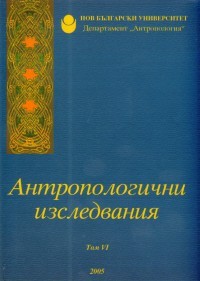
Keywords: friendship; organisational model; social networks; Bulgaria;
It is the purpose of this work to characterise friendship as a principle of organisation, mobilisation and functioning of the social networks in Bulgaria under socialism and postsocialism. During this entire period, social relations have been in a process of incessant transformations. For that reason, the investigation of friendship is a step towards getting to know the changes in the social and in the interpersonal relations, moreover knowing that the latter have been underinvestigated by the Bulgarian social sciences.Within this context the specific objectives of this paper are: to formulate the characteristics, typology and cultural forms of friendship in a Bulgarian environment; to follow how friendship compares with the other types of interpersonal relations in Bulgaria (ritual kinship, neighbourliness); to outline the functioning of the friendly coalitions at the place of work; to chart the functioning of the friendly coalitions in the time of leisure.In tackling these objectives, the methods of investigation have been dominated by the striving to combine oral information (autobiographies and autobiographical interviews) with data contained in written sources. In writing this work I have used about forty interviews, taken within the frameworks of the FOROST project, from 2001 to 2004, mostly from representatives of the intelligentsia in Sofia. The state archives rarely contain data about phenomena like friendship. To make up for this, I have studied unpublished written autobiographies, published memoir literature, written diaries, kept at my request by thirteen women in the course of 15 days in 2002, as well as some essays by university students. Finally, I studied all the 73 autobiographical narrations as well as the forum, prompted by these narrations in the special Internet site, devoted to the memories about socialism in Bulgaria.
More...Keywords: English for Specific Purposes; English for Professional Purposes; English for Occupational Purposes; English for Academic Purposes; Curriculum, needs analysis; Anglų kalba specialiems tikslams;Anglų kalba;
Knowledge of a foreign language opens new prospects of mobility and collaboration for professionals in the modern world. Education authorities recognize the increased role that foreign languages, especially English, play in the professional development of future specialists and try to introduce this subject at tertiary level. Such courses are aimed at preparing students to effectively communicate in English in their work settings. However, many university students do not have work experience in their field of specialization, or they do not know what language skills they might need in their future work. Thus, the choice of course content and teaching methods depends on the instructor who seldom has clearly defined national guidelines to rely on. The study focuses on characteristics of English for Specific Purposes (ESP). The research outlines the approaches to ESP curriculum development and planning. The paper outlines the prerequisites and methods of analysing learners’ expectations and goals. The study determines what components of course content help to align aims, form, and conditions of educational activities with the students’ future professional roles. The research sets to analyze ESP students’ goals and expectations employing qualitative and quantitative techniques. Užsienio kalbų mokėjimas šiuolaikiniame pasaulyje atveria naujas specialistų mobilumo ir bendradarbiavimo galimybes. Ugdymo srities ekspertai pripažįsta, kad sustiprėjęs užsienio kalbų, ypač anglų kalbos, vaidmuo yra itin svarbus ateities specialistų profesinio tobulėjimo srityje ir stengiasi įdiegti šį dalyką aukštojo mokslo studijų programose. Tokių dalykų tikslas – parengti studentus efektyviai komunikacijai anglų kalba jų darbo aplinkoje. Vis dėlto daugelis universitetų studentų neturi darbo patirties savo specialybės srityje arba nežino, kokių kalbinių įgūdžių jiems gali prireikti ateityje profesinėje veikloje. Taigi dalyko turinio ir mokymo metodų parinkimas priklauso nuo dėstytojo, kuris dažnai neturi aiškiai apibrėžtų valstybinių gairių. Šiame tyrime pateikiami anglų kalbos specialiems tikslams (ESP) bruožai, nagrinėjami ESP mokymo planų kūrimo aspektai, metodai ir reikalavimai besimokančiųjų lūkesčių ir tikslų analizei. Tyrimo procese nustatyta, kokie kurso turinio komponentai leistų suvienodinti ugdymo veiklų tikslus, formas ir sąlygas su studentų profesiniais vaidmenimis ateityje. ESP studentų tikslai ir lūkesčiai analizuojami panaudojant kokybinį ir kiekybinį tyrimo metodus.
More...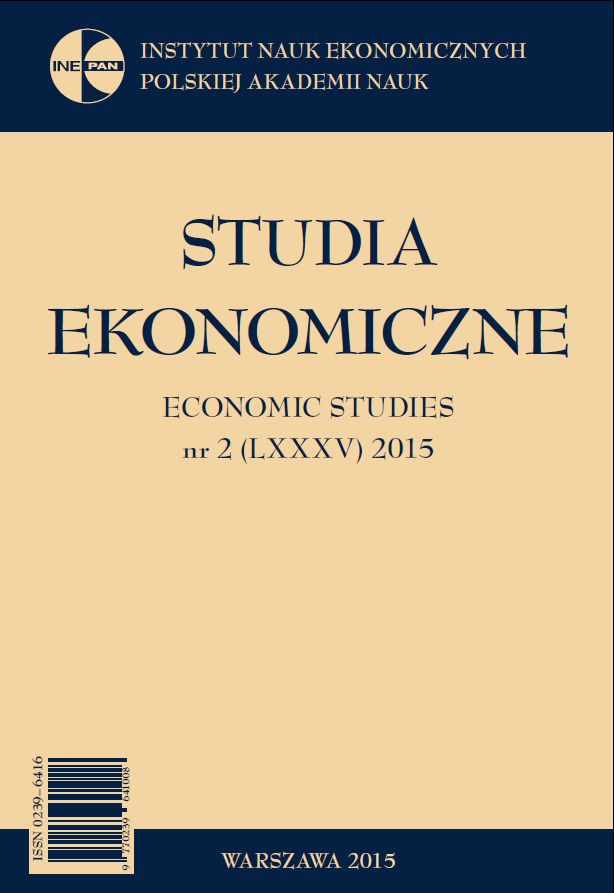
Keywords: lure of choice, economic decisions, cognitive heuristics
The paper examines the ’lure of choice’ phenomenon. This is the tendency to select open situations that allow to take further choices over those that do not, even when the extra choices cannot improve the ultimate outcome. Five surveys were conducted which involved a total of 272 people. Their task was to assess credit offers, investment fund offers and bank deposits. It was hypothesized that multi-choice offers are rated higher than no-choice ones. The fi ndings confi rm this prediction. In the discussion it is stressed that the ‘lure of choice’ is an important cognitive heuristic affecting economic decisions.
More...Keywords: Multidisciplinary education; Professional English; e-learning solutions; Blended learning;Daugiadisciplinis mokymas; Profesinė anglų kalba; e. mokymosi sprendimai; Mišrus mokymasis
The main concern for modern universities is to provide their graduates with a wide variety of skills required for the international job market, including excellent language skills. In this context, English language learning in a higher education institution is becoming an indispensable component of multidisciplinary education. A multidisciplinary study program is characterized by the integration of various areas; in the framework of such a program, different educational formats of learning both languages and professional subjects can be incorporated. In contemporary universities, the English language needs to be a competent language when it comes to teaching in the content areas of Management, Economics, Architecture, Human Rights, Information Technologies and many other specialized subjects. In a multidisciplinary program, each Professional English language course must meet the requirements of people who are going to use English as an international language in order to communicate efficiently in their particular area of expertise, and for whom using English at work would be essential for their career development. This paper addresses some of the major issues related to teaching Professional English at a modern university. The aim of this paper is to discuss a few innovative e-learning solutions to be utilized within the framework of a multidisciplinary educational program for increasing the graduates’ proficiency in professional communication with the aim to prepare them for the global labor market. In the paper, it is argued that the blended approach to language learning shows great promise as an efficient tool for acquiring different language skills, the emphasis being put on applying English in real-life situations and in specialized fields. Pagrindinis šiuolaikinių universitetų tikslas – suteikti studentams įvairių gebėjimų, būtinų tarptautinėje darbo rinkoje, įskaitant ir puikią kalbinę kompetenciją. Šiame kontekste anglų kalbos mokymasis aukštojo mokslo institucijoje tampa privalomu daugiadisciplinio ugdymo elementu. Daugiadisciplinio mokymo programą charakterizuoja įvairių sričių integracija – tokios programos struktūroje inkorporuojamos įvairios kalbos bei profesijos dalykų mokymo schemos. Šiuolaikiniuose universitetuose anglų kalbai turėtų būti skiriamas kompetentingos kalbos vaidmuo, mokant vadybos, ekonomikos, architektūros, žmogaus teisių, informacinių technologijų ir daugelio kitų specializuotų dalykų. Daugiadisciplinėje programoje profesinės anglų kalbos dalykas turi atitikti reikalavimus tų žmonių, kurie, siekdami efektyvios komunikacijos, vartos anglų kalbą tarptautiniame profesinės srities kontekste ir taip pat tų žmonių, kuriems anglų kalbos mokėjimas darbinėje veikloje yra esminis profesinio augimo elementas. Straipsnyje nagrinėjamos kelios reikšmingos profesinės anglų kalbos mokymo šiuolaikiniame universitete problemos. Pateikiami keli inovatyvūs e. mokymosi sprendimai, kurie gali būti panaudojami daugiadisciplinės mokymo...
More...